Reading stabbings: 'We did all we could to save the victims'
- Published
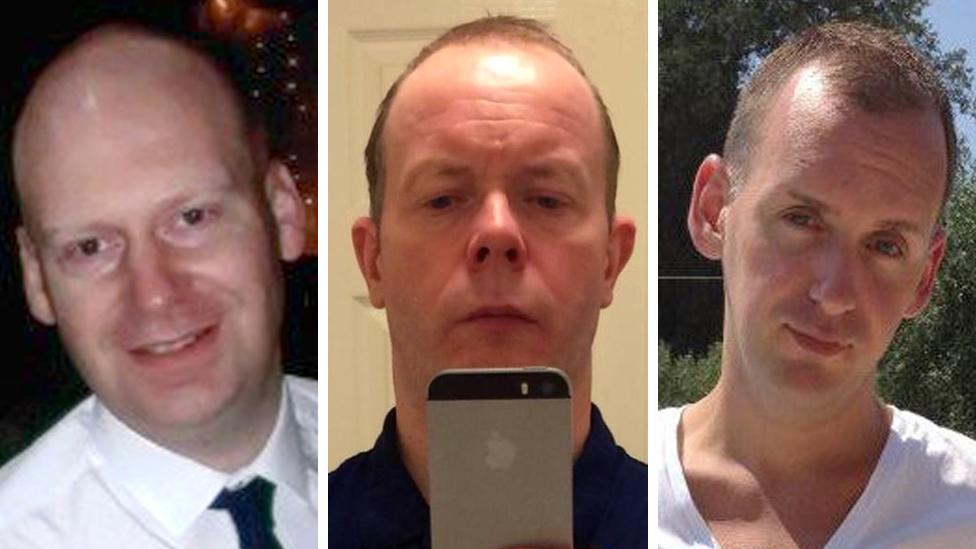
Friends James Furlong, David Wails and Joe Ritchie-Bennett lost their lives in the attack
On a warm summer evening, friends and families gathered in Reading's Forbury Gardens to enjoy the easing of lockdown restrictions, unaware it would soon be the scene of a terrifying stabbing spree.
As they relaxed in the park on 20 June 2020, Khairi Saadallah launched an attack that lasted less than 30 seconds.
He has been jailed for the rest of his life for the murder of friends James Furlong, 36, David Wails, 49, and 39-year-old Joe Ritchie-Bennett, as well as the attempted murder of three others.
Seven months after the town was left reeling, the BBC speaks to witnesses about their memories of the attack, and those who tried to help people affected in the aftermath.
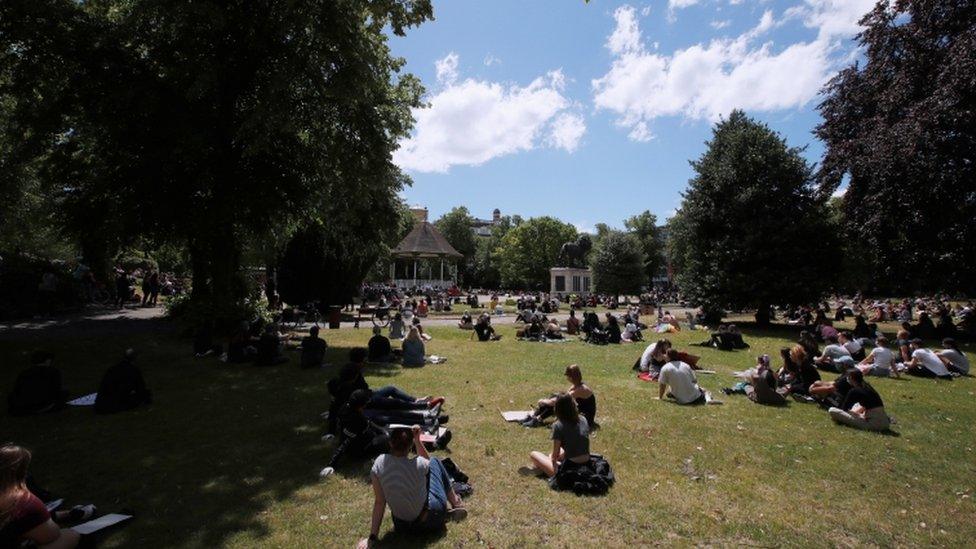
Groups had been relaxing in Forbury Gardens in the centre of Reading when the attack happened

'He could have killed me'
Forbury Gardens witness visits park for first time since attack
"Initially we just thought it was one of their mates trying to play water fights, but unfortunately it wasn't the case," said Andrew Cafe.
The analyst was sat down enjoying drinks with a friend in the park, before the attack he described as "a bloodbath".
"He was so quick. After he managed to stab the third person, he started charging towards me and my mate. He shouted 'Allahu Akbar [God is the greatest]' - which I don't know why he shouted because I'm pretty sure Allah would not be proud of what he did."
Mr Furlong, Mr Ritchie-Bennett, Mr Wails - who Mr Cafe knew as acquaintances - and their friend Stephen Young had been stabbed by the attacker.
"In a split-second I decided I had to run for my life. He started chasing me, before he started chasing my mate," he said.
"As I was running I shouted, but I guess nobody paid attention because it was a Saturday and people were having drinks, and enjoying their time at the park. Unfortunately there was a second group close to us and they became his next target."
In that group was Nishit Nisudan and Patrick Edwards, who were stabbed by Saadallah before he fled.
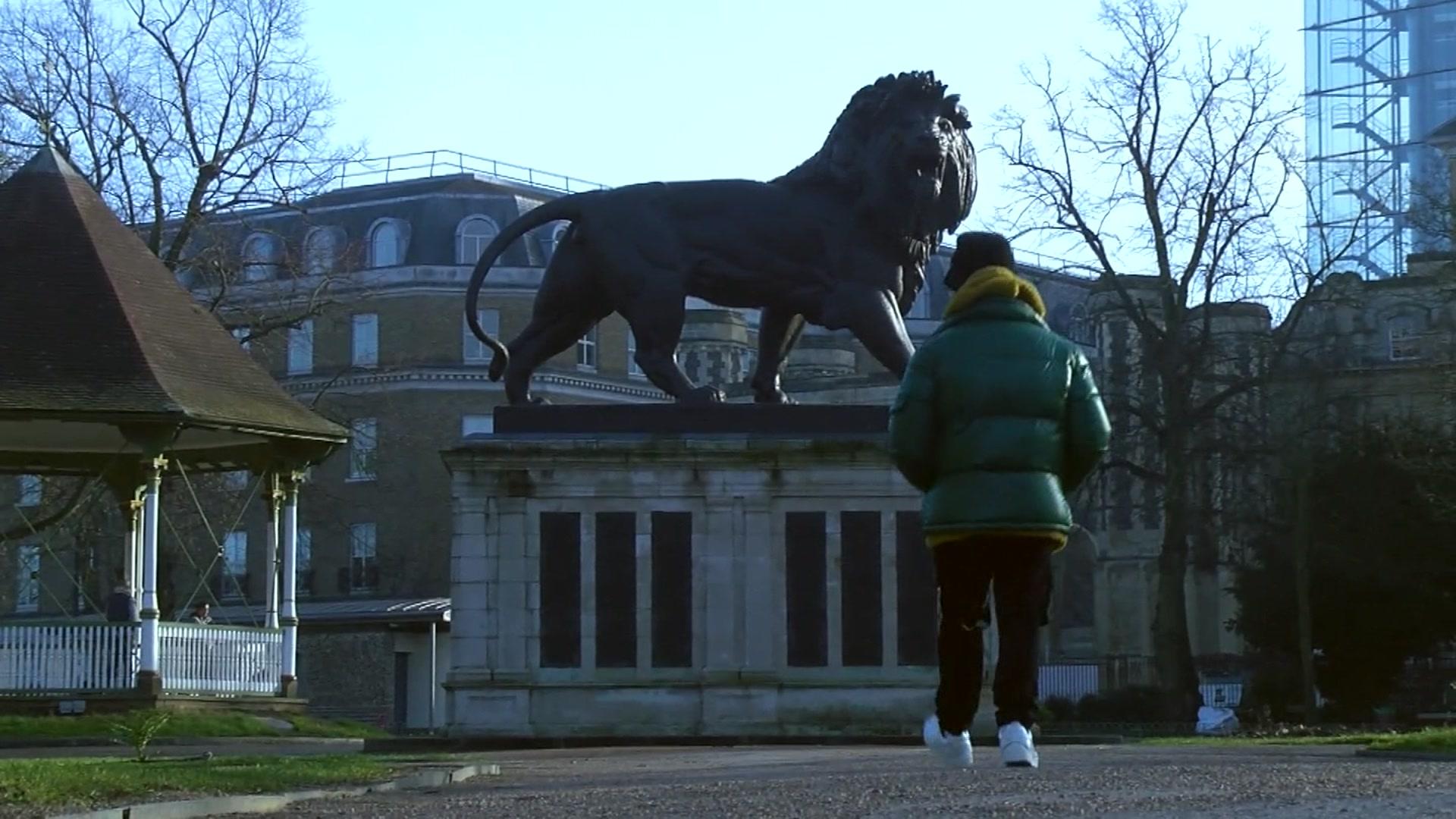
Andrew Cafe visits Forbury Gardens for the first time since the attack
Reflecting on the incident, the former nurse said: "The thought in my head keeps playing that this person could have killed me - I have to live with that all my life. I may not be physically hurt, but I'm mentally scarred."
He credits his "good support system", consisting of friends, family, his employer and Thames Valley Police, for helping him recover from the experience.
"The last thing we want is for this person to take away our happiness," he said. "I don't want to live in fear, I don't want to live with negativity.
"He's been sentenced and it's the light at the end of the tunnel, but nothing will ever bring the life back of the three people he killed."

'We did everything we could to save them'
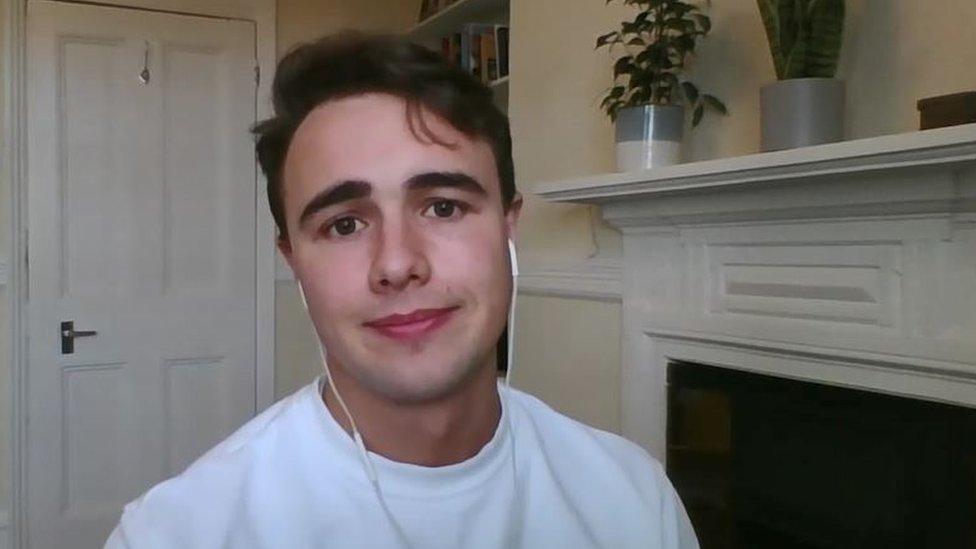
"I couldn't quite figure out what was going on at first, and then I saw some people running and could see some people lying on the ground," said James Antell, from south-west London.
The 26-year-old had been enjoying a socially-distanced picnic with a friend in Forbury Gardens when he noticed a commotion about 60m (200ft) away.
"There were also people shouting for help, so that's when I realised something was not quite right," he continued.
"I ran over to where the people were lying on the ground, the three casualties were all in quite a bad way."
Mr Ritchie-Bennett and Mr Furlong each suffered single stab wounds to the neck, while Mr Wails was stabbed once in the back.
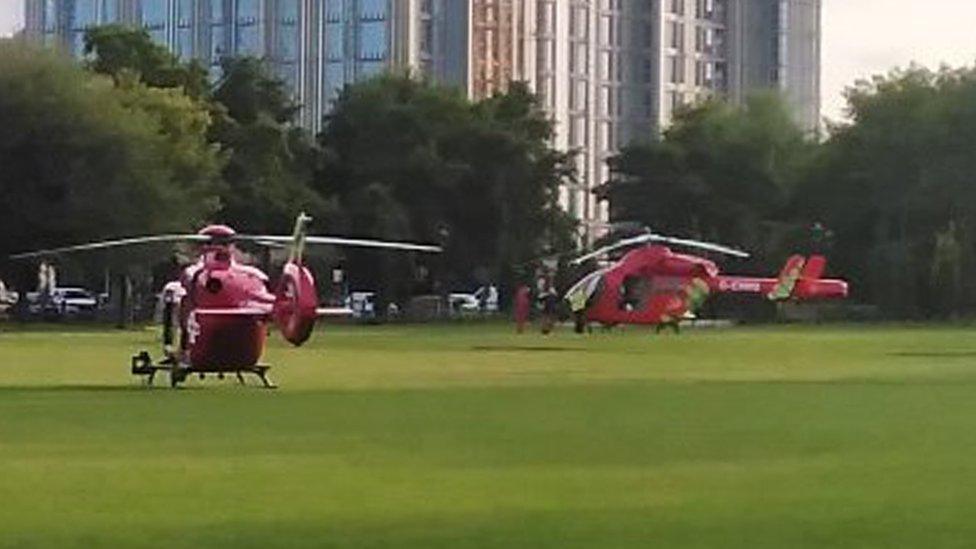
Despite considerable efforts of paramedics and air ambulance doctors, the three victims died at the scene
Mr Antell and other bystanders did what they could to help the victims.
The parliamentary assistant used his shirt to to apply pressure and stem the bleeding of one victim, and continued resuscitation on a second victim until paramedics arrived.
Despite the best efforts of paramedics and air ambulance doctors the three friends could not be saved.
While Mr Young, Mr Edwards and Mr Nisudan survived the attack.
"I did what I could to help," he said.
"It absolutely showed the spirit of the public and the Reading community, and in the hours after the attack, cafes and churches were doing all they could to support those that had been in the park... and make sense of what had happened."
He added: "I saw something that day I'm sure will stay with me for the rest of my life, but my overriding thoughts are with the victims, and their friends and families.
"It's a very odd thing to go through. You read about these things on the news, but you never think its going to happen to you."

'It felt like you lost your own'
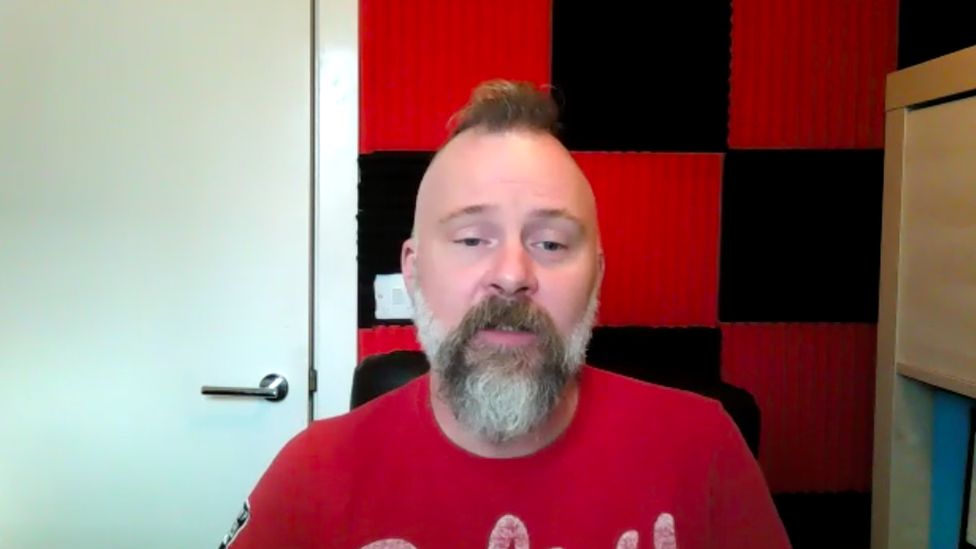
"Joe was just one of these people, if you were in the room and he was in the room, you knew him - big personality," said Jamie Wake, who was friends with Mr Ritchie-Bennett, and also knew Mr Furlong and Mr Wails.
The men, who were gay, were often at the Blagrave Arms pub in Reading - a mixed venue which has been adopted as a "home" for LGBT people.
Mr Wake, who runs Club FOD at the pub, said: "It doesn't matter where in the world you were, because of the way the LGBT community is, it felt like people you knew... you lost your own at that point."
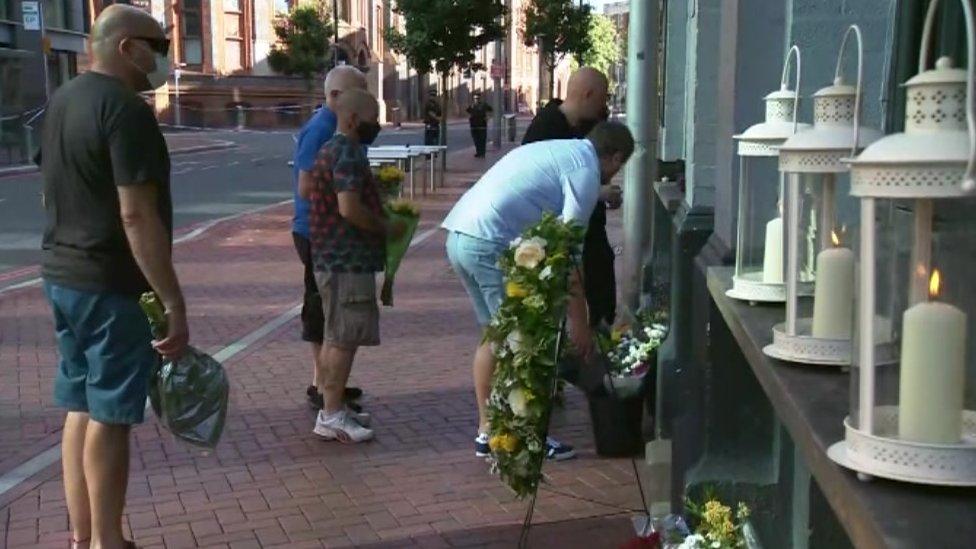
The Blagrave Arms became a focal point for the LGBT community to lay floral tributes
In the days after the killings, the 43-year-old organised a minute's silence outside the venue.
"You knew at that moment you were part of a community," he said.
"For me it's a moment I will remember because you just had to be there to feel the emotion in the air."
The LGBT campaigner added: "In the reporting we're hearing now about the perpetrator who committed this horrendous act and his sentencing, but we've got to be mindful there were three people who were very much loved in this town behind this story, and that's what we must not forget."

'The number of calls for help doubled'
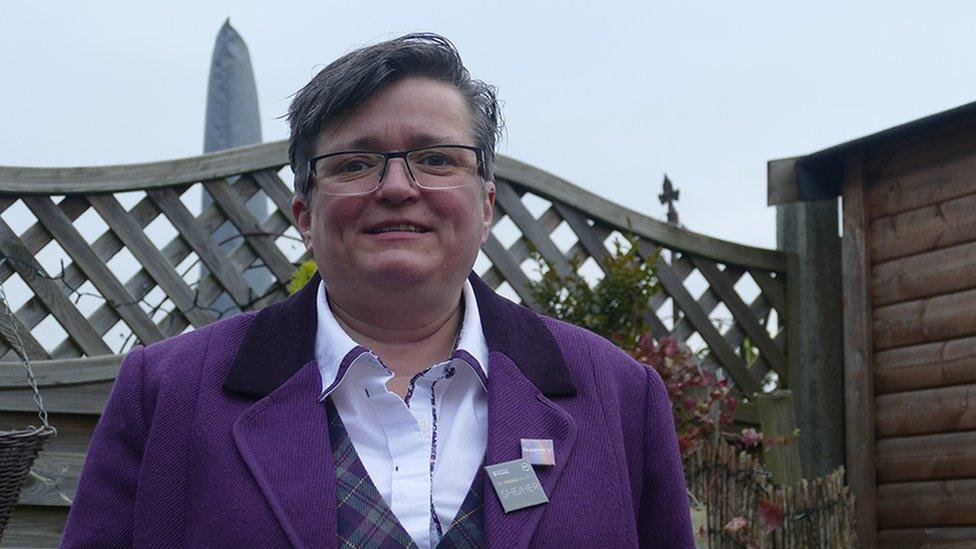
"We tried to make sure we could be supportive of their needs and make sure they had someone to talk to about what was going on," said Lorna McArdle of Reading-based charity SupportU, which provided counselling to those affected in the LGBT community.
The charity, which specialises in helping people who need support with LGBT issues, had a 44% increase in inquiries following the attack.
"It was a massive shock especially when news got round that a lot of people within our community knew those who were affected by it," Ms McArdle said.
She added: "We were able to support them in making sure they knew it was a one-off event."

'Talk to people who can help support you'
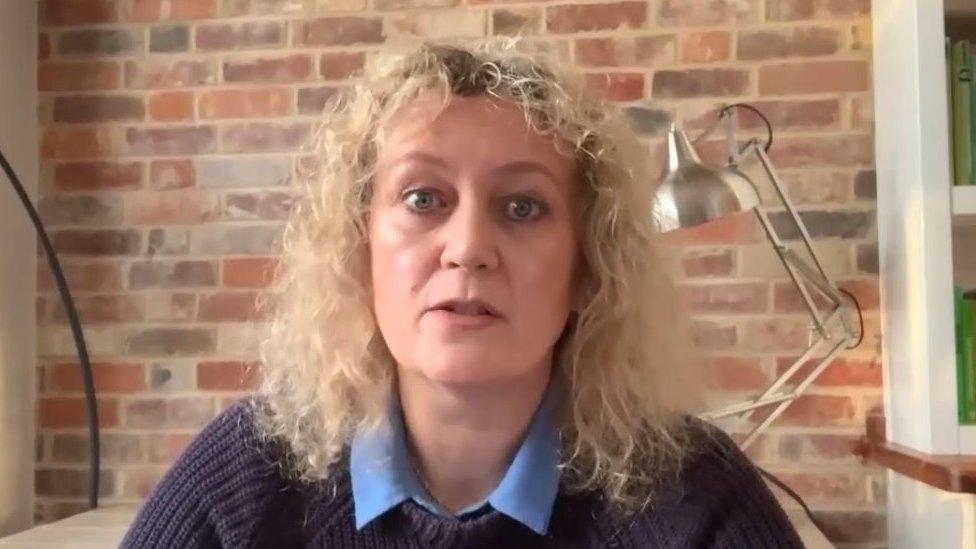
"We are aware that there is a risk of developing post-traumatic stress disorder and other psychological upsetting symptoms," said Dr Deborah Lee who heads up Berkshire Healthcare NHS Foundation Trust's Traumatic Stress Service.
The trust works with Victims First, run by the Thames Valley Police and Crime Commissioner's (PCC) office, to manage the official support service to help those affected, external by the Forbury Gardens attack.
It has been reaching out to survivors, witnesses, bereaved families and emergency service workers who responded to the incident.
Dr Lee is a consultant clinical psychologist and said an unexpected event like the attack can traumatise the mind and lead to people being worried about future threats.
She said: "You might see people developing anxiety, fear of going out in the street, and of course this is compounded by Covid at the moment because we are not going out.
"So people might not even be aware that they are going to be anxious when they re-engage in their worlds [post-Covid].
"But we would certainly see anxiety around physical danger, and we also see this very characteristic symptom, which is re-experiencing of the traumatic event.
"And this is the one people find really frightening. So they go over the events in their minds. They might have flashbacks. They might have nightmares or intrusive thoughts but it feels real. And it feels like it's happening again."
Deputy PCC Matthew Barber said: "If you were involved in that incident [the sentencing] brings all of those memories flooding back.
"So of course the support of Victims First is there for anybody who's been affected by this or any other crime."
Related topics
- Published11 January 2021
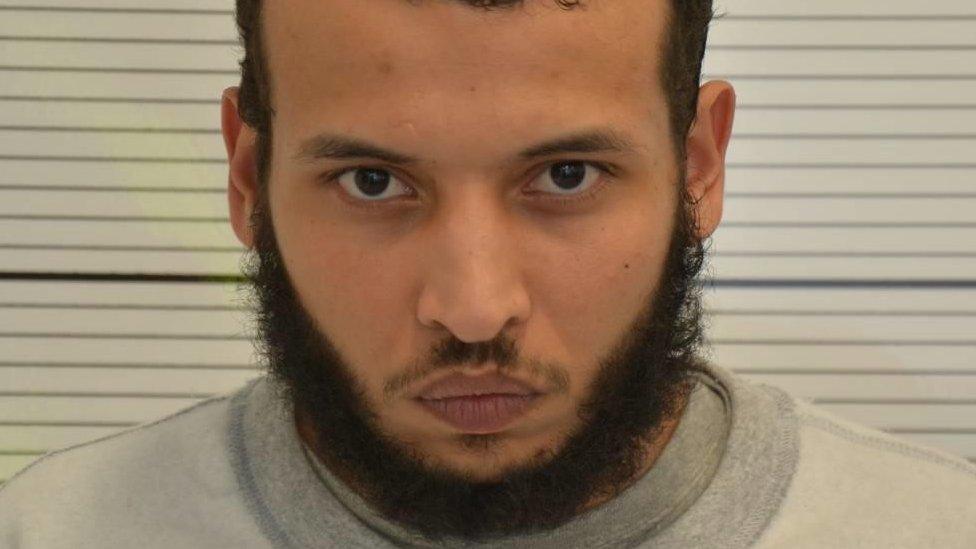
- Published6 January 2021
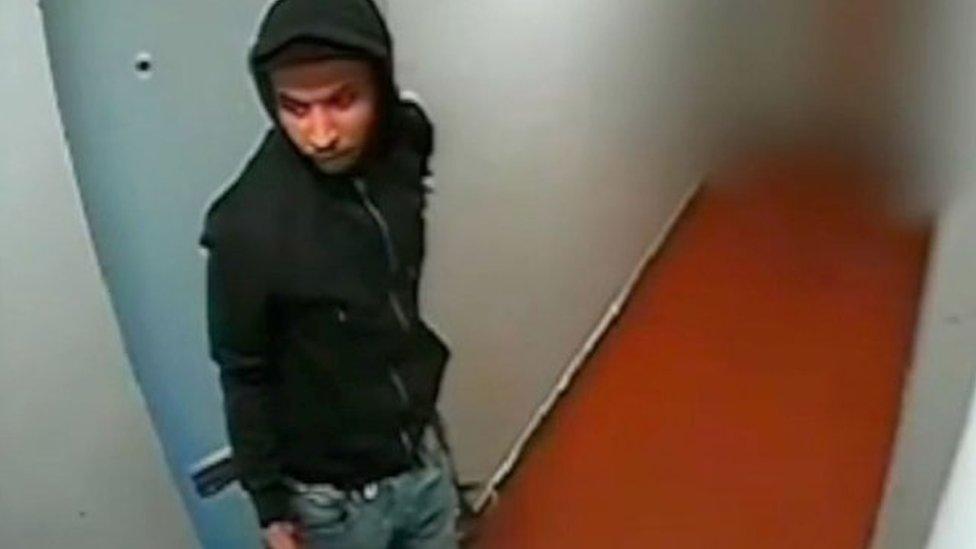
- Published5 January 2021
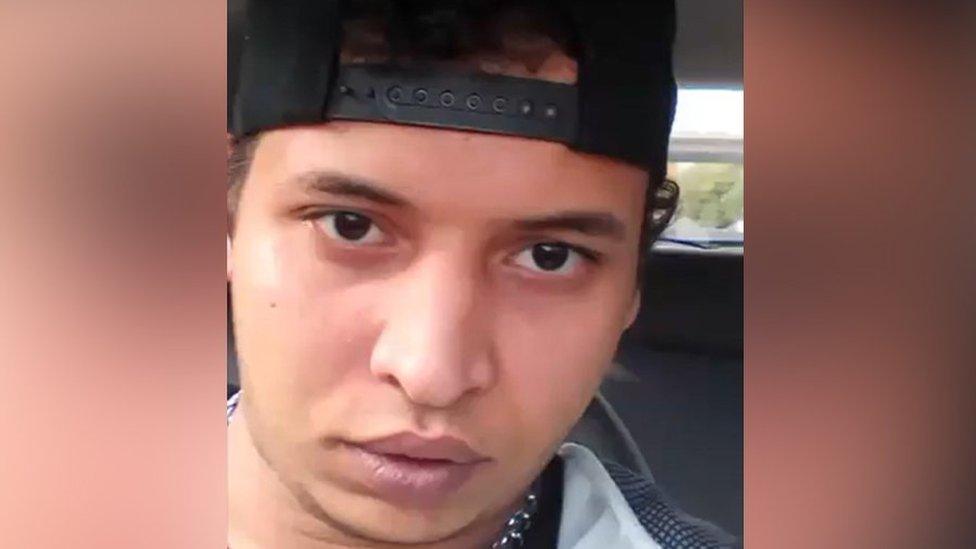
- Published11 November 2020

- Published29 July 2020
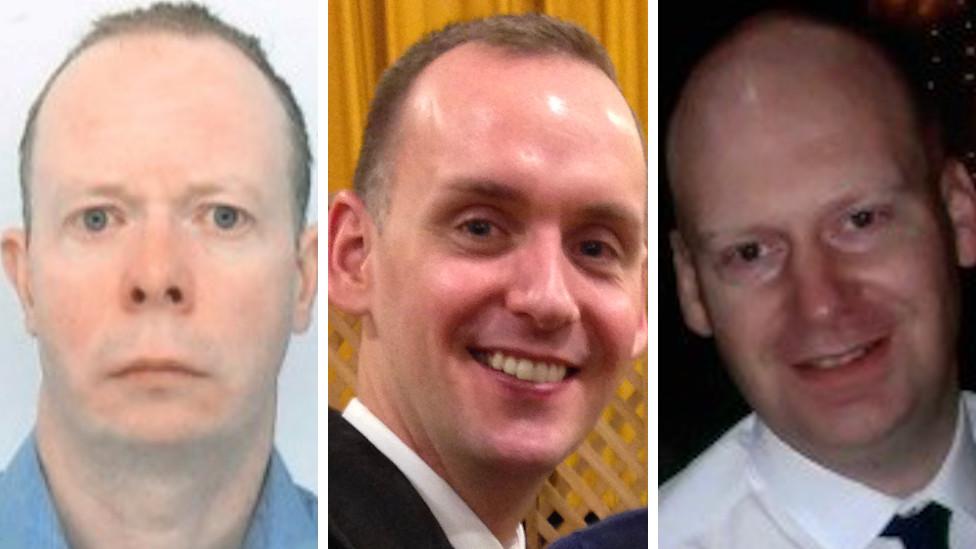
- Published27 June 2020
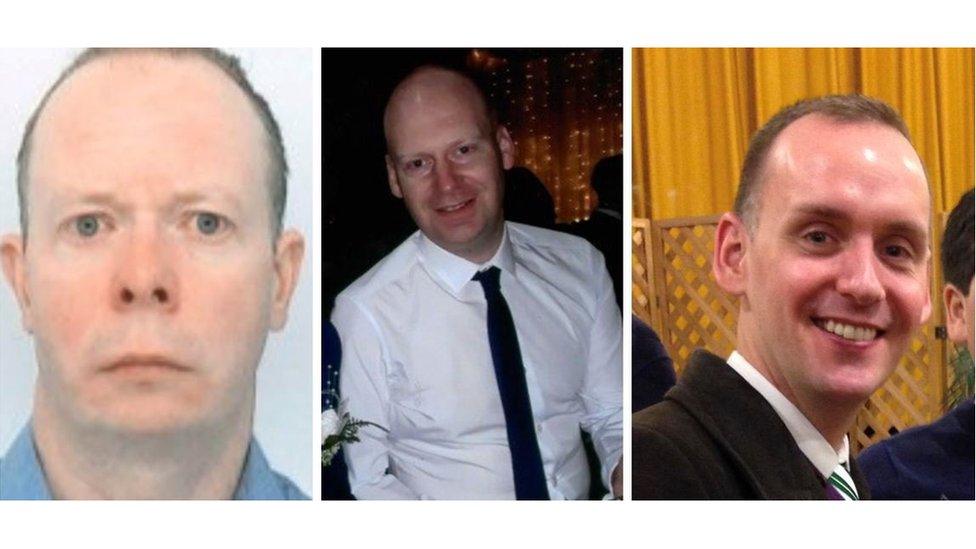
- Published22 June 2020
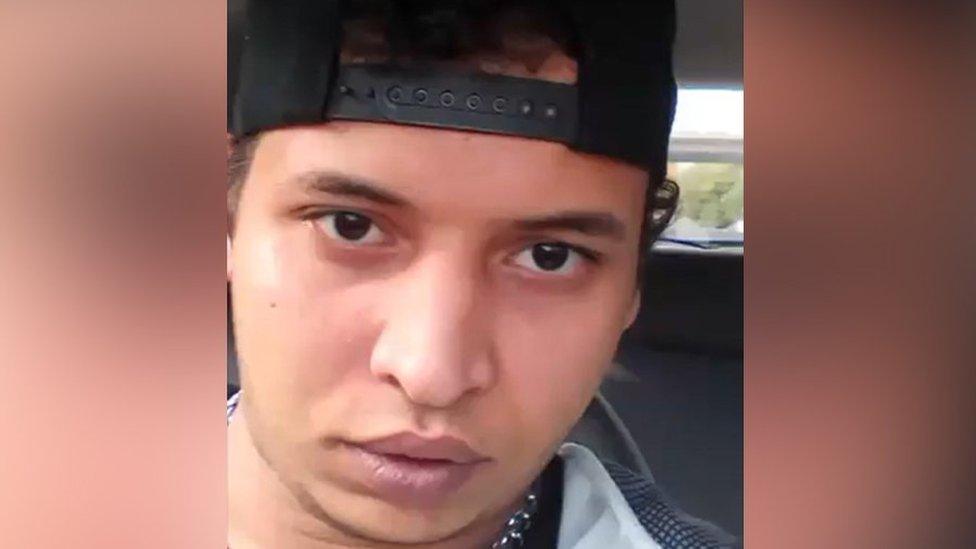
- Published22 June 2020
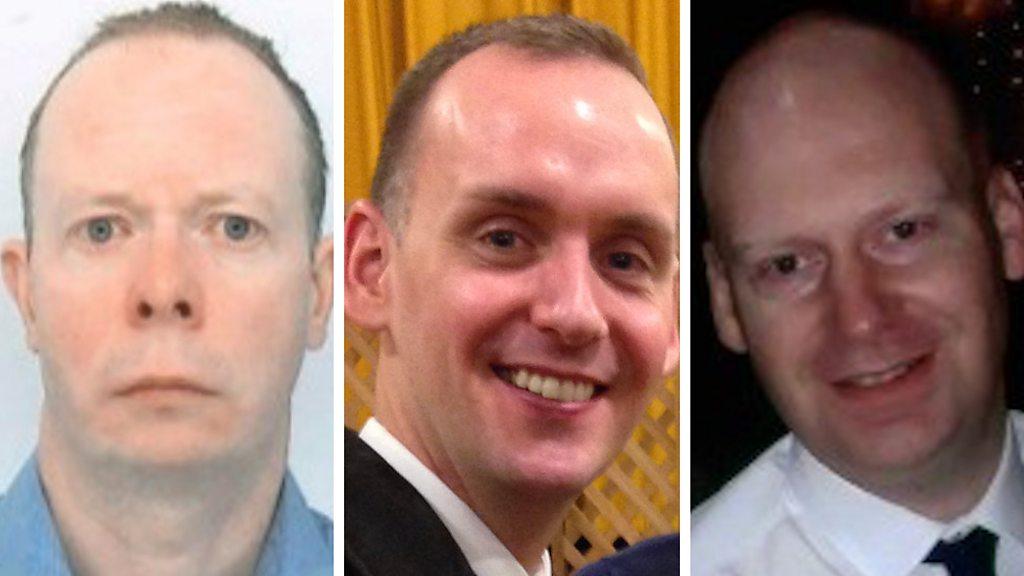
- Published21 June 2020
